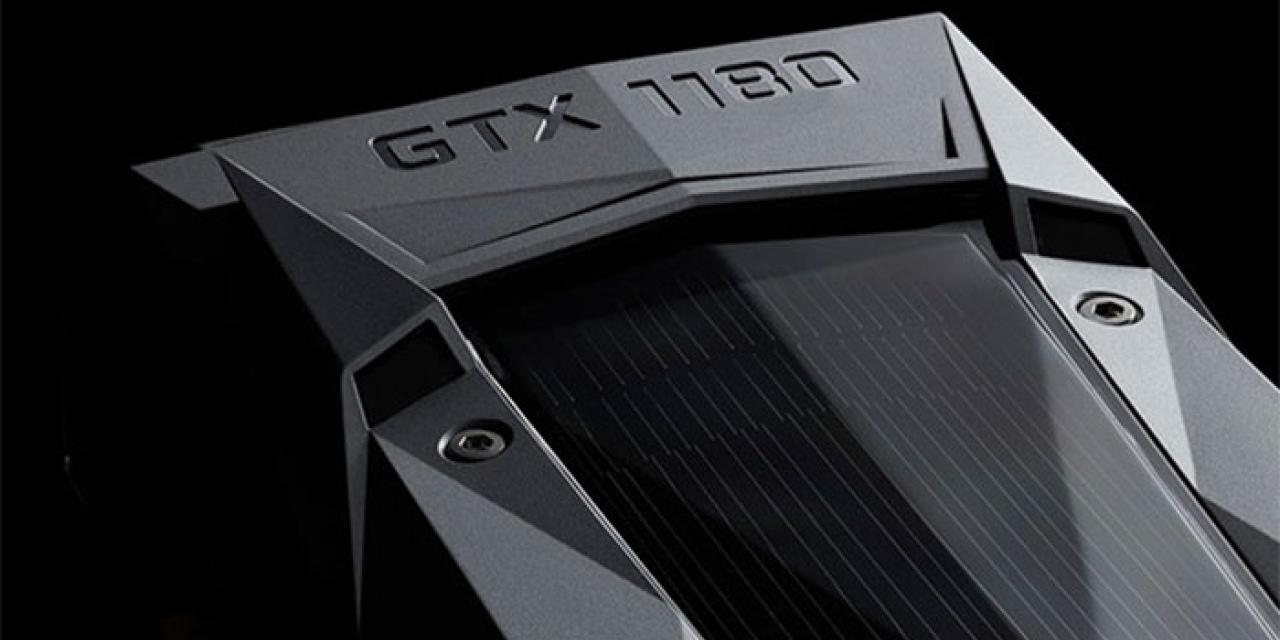
Much has been made of a supposed leak of information about Nvidia's next-generation flagship graphics card, currently speculatively named the GTX 1180, but what do we really know about it and how accurate are the predictions?
Pascal primed
It's been two years since the release of Nvidia's hugely successful Pascal generation (1000 series) graphics cards. The GTX 1060, 1070 and 1080 have been mainstays, despite the problems cryptocurrency demand has reaped on the availability and pricing of many of the GPUs in the range. We've also seen next-level performance from cards like the 1080Ti and Titan XP and hints of a super powered future with the Volta-based Titan V. But what about what comes next?
For now we don't even know what the next-generation will be called. It could be Turing, it could be Volta. Both have been hinted at but one is suggested to have an AI/cryptocurrency mining focus. If we had to take a swing at it now, we'd lean towards Turing being the enterprise-targeted GPU lineup and Volta being the consumer range, but that's just us.
Looking back at the last couple of generations of hardware from Nvidia, the release line up should start with the GTX 1180/2080 – whatever it's called – followed by the 1170/2070 shortly after, and then one to three months later, the GTX 1160/2060 will debut to cater to those who don't have deep enough pockets for the more powerful cards.
Potential (nonsense) specs
The TechPowerUp GPU database entry for the GTX 1180 is very much a bunch of guess work, but it does provide some solid guesses which we can base our own predictions off of. The 12nm process size is a given – we know that's the process size that the next-generation will be based on, as Nvidia has been talking about its production for well over a year.
The chip name too, seems likely to be accurate. The GTX 1080's core was the GP104 and the Titan V has a GV100 core. GV104 for the 1180 makes a lot of sense.
Everything else though is a little less certain.
The claimed FP32 performance of 13 teraflops is an interesting piece of guesswork. We certainly don't know that the card will be capable of that. That's also around what a 1080Ti can do now with a little overclocking, so that wouldn't be a particularly impressive increase in performance for a card like the 1180, even if it does manage to offer that kind of performance in the suggested 200w TDP bracket.
16GB of RAM seems like a stretch too. The 1080 came with 8GB as standard, the same as the 1070, while the 1080Ti pushed things up to 11GB and the Titan X and XP offered 12GB. A standard 12GB of (possibly) GDDR6, or at least GDDR5X seems most likely for the more modest end of the top-tier of next-gen GPUs from Nvidia. Ti and Titan variants could offer 16GB when released further down the line.
The clock speeds too seem pretty speculative and if anything, rather low. The 1080 launched with clock speeds of 1,607MHz on the core, boosted to 1,800MHz with Max Boost 3.0. If the 1180 really did launch with 1,405/1,582MHz respectively, that'd be a bit of a damp squib.
When can we learn more?
Fortunately this period of endlessly unfounded speculation is likely drawing to a close. Rumors and history suggest Nvidia is likely to begin launching the founders editions of the next-generation graphics cards sometime in July or August, which means we'll have the official reveal in the very near future.
What upcoming event would be a good foundation for that? Computex seems like a good bet. Set to take place at the start of June, we'd put good money on Nvidia making the first revelation of what the 1180/2080s are capable of.








